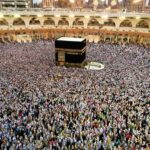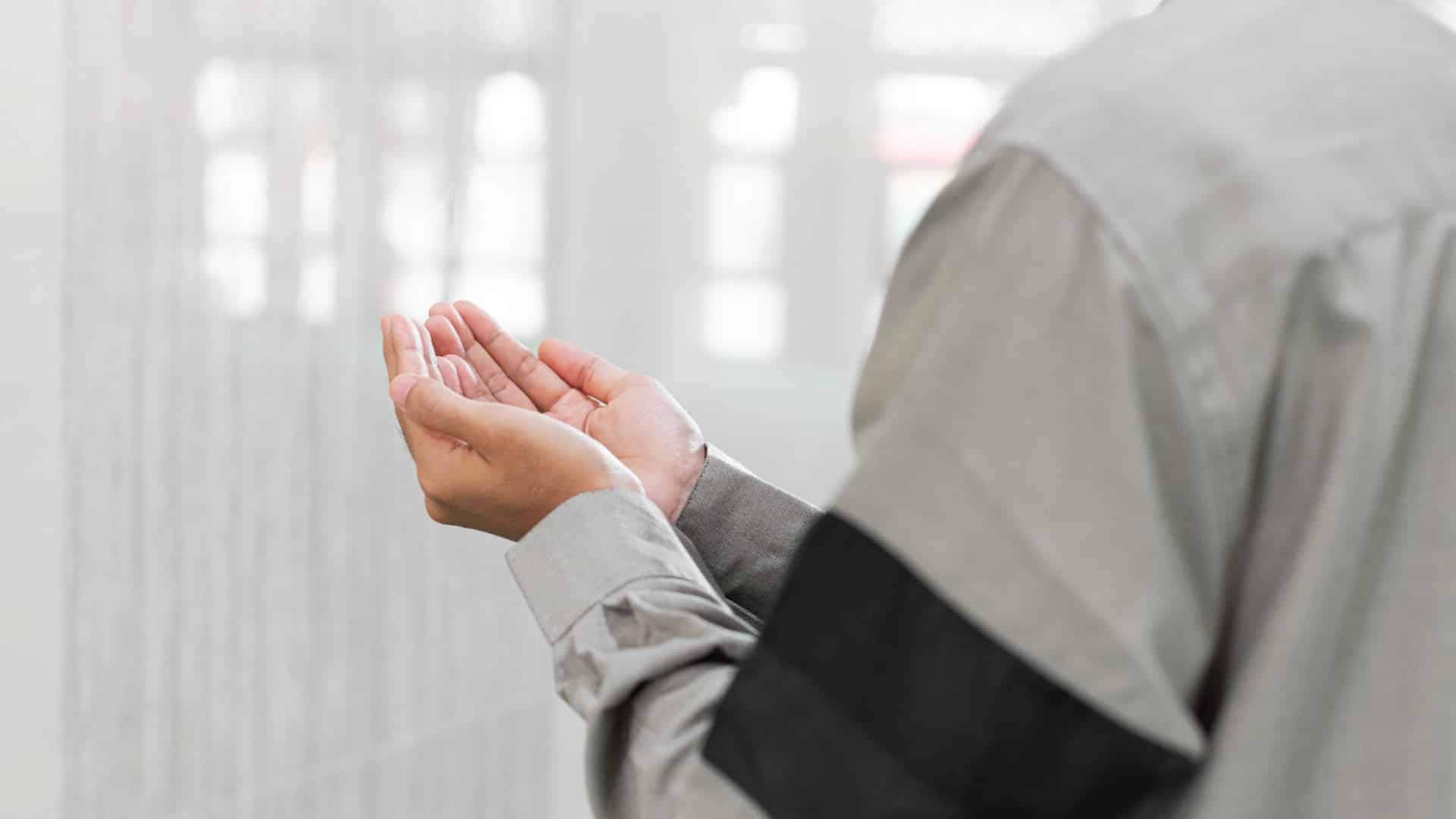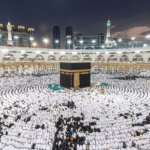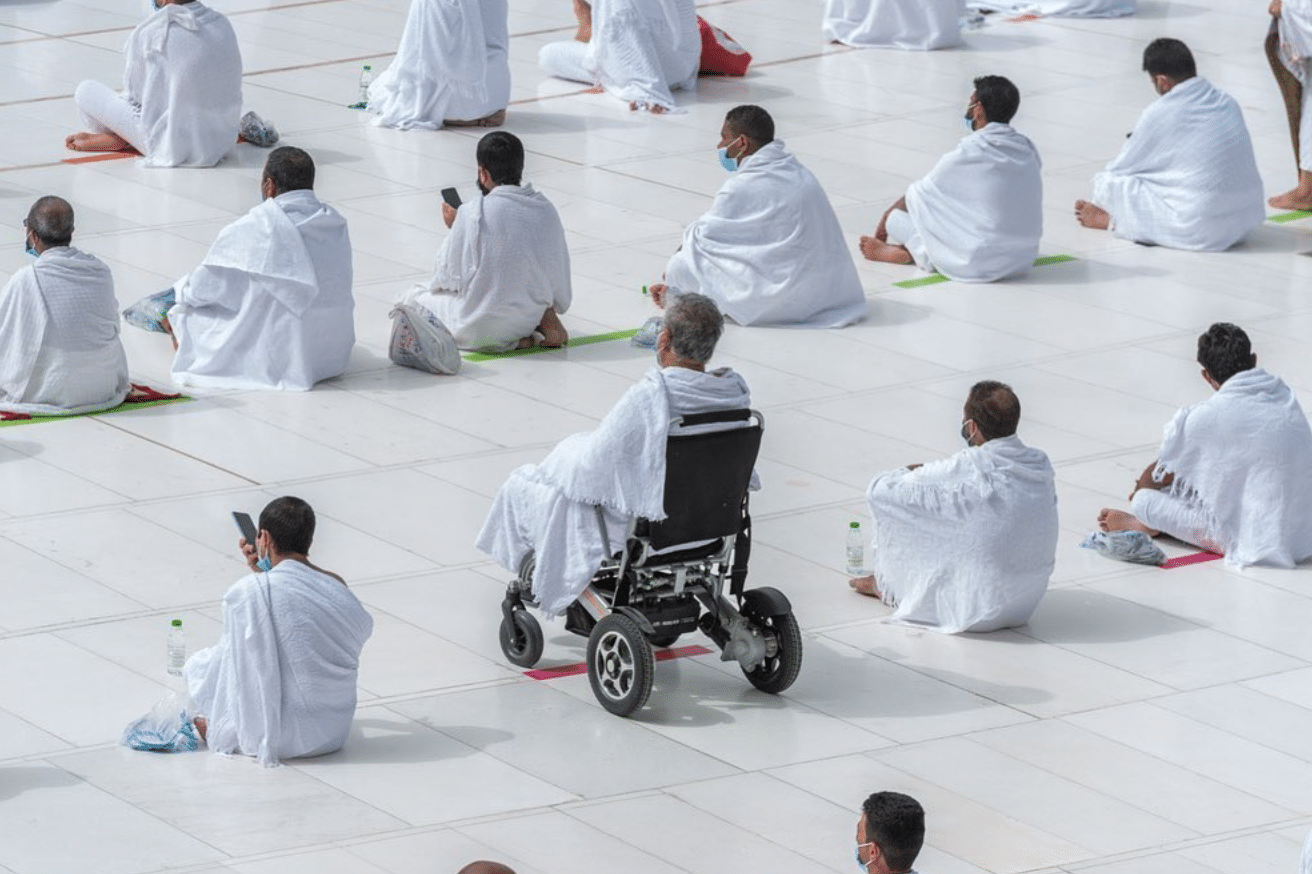Niyyah – What is Niyyah and Why is it important in Islam?
You must have heard that the value of your actions is based upon your intentions. Whether performing a religious act or a non-religious one, as a Muslim you are taught that you should make Niyyah, and have good intentions in everything that you do.
But have you ever wondered why making Niyyah is so important or why worship is considered incomplete without Niyyah? Well, you will find the answer to all these questions in this article. So, without further ado, let’s begin.
What Is a Niyyah in Islam?
“Niyyah” is an Arabic word which literally means ‘intention.’ It is an essential and basic prerequisite for performing any form of worship and/or good deed.
In simpler words, Niyyah refers to the motive behind an act, which is to attain Allah SWT’s reward and draw yourself closer to the Almighty.
In Islam, there are two aspects to Niyyah. The first one is the intention itself. The second one is the intention for the One for whom the act is carried out. Making the intention is what helps distinguish an ordinary act from an act for worship that is performed for the sake of Allah SWT.
The Messenger (PBUH) of Allah SWT said,
“The reward of deeds depends upon the intention and every person will get the reward according to what they have intended. So whoever emigrated for Allah and His Apostle, then their emigration was for Allah and His Apostle. And whoever emigrated for worldly gain or for a woman to marry, their emigration was for what they emigrated for.” (Sahih Bukhari, Kitab-ul-Imaan, Hadith No. 54)
When it comes to the right way of making Niyyah, there is no rule book. It is not necessary to utter the intention by tongue, instead, it is recommended to make Niyyah from the heart.
Why Is Niyyah Important?
In Islam, Niyyah holds great importance in the lives of every Muslim. It is what helps you differentiate between different acts of worship. For example, “I make Niyyah to perform Fajr prayer or I make Niyyah to perform Isha prayer.”
Most importantly, it helps you distinguish between the acts that you solely perform for the sake of Allah SWT and those that you perform for the sake of others. This means that any deed performed without Niyyah might not be accepted by Allah SWT.
Umar bin Al-Khattab narrated,
“I heard Allah SWT’s Messenger (PBUH) saying: ‘The reward of deeds depends upon the intentions and every person will get the reward according to what he has intended. So whoever emigrated for worldly benefits or for a woman to marry, their emigration was for what he emigrated for.'” (Sahih Bukhari and Muslim)
How to Pronounce Niyyah
To pronounce Niyyah in English, you must break the word into two trios of letters:
Niy – yah
Now all you need to do is pronounce each trio one at a time.
Niyyah in Arabic
The term Niyyah in Arabic is written as نِيَّةٌ,. From a religious perspective, it is a concept that means to make an intention in your heart to do an act for the sake of the Almighty.
Niyyah for Hajj and Umrah

When going for pilgrimage, it is recommended to make Niyyah before the Miqat or at the Miqat. In order to enter into the state of Ihram you must make Niyyah to perform Hajj or Umrah for the sake of Allah SWT. If you are planning to perform Hajj and Umrah together, recite the following dua to make Niyyah (intention):
لَبَّيْكَ اللَّهُمَّ عُمْرَةً وَ حَجًّا
اللَّهُمَّ إِنِّيْ أُرِيْدُ الْعُمْرَةَ وَ الْحَجَّ
اللَّهُمَّ إِنِّيْ أُرِيْدُ الْعُمْرَةَ وَ الْحَجَّ فَيَسِّرْهُمَا لِيْ وَتَقَبَّلْهُمَا مِنِّيْ
Transliteration: Labbayk Allahumma Umratan wa Hajj.
Allahumma Innee Ureedul Umrataw-wa Hajj.
Allahumma Innee Ureedul Hajja fa Yassir-hu lee wa Taqabbal-hu Minnee.
Translation: “O Allah, here I am to perform Umrah and Hajj.”
“O Allah, I intend to perform Umrah and Hajj.”
“O Allah, I intend to perform Umrah and Hajj, so make them easy for me and accept them from me.”
Niyyah for Salah
You may recite the following ayah from the Quran [6:79]:
إِنِّى وَجَّهْتُ وَجْهِىَ لِلَّذِى فَطَرَ ٱلسَّمَـٰوَٰتِ وَٱلْأَرْضَ حَنِيفًۭا ۖ وَمَآ أَنَا۠ مِنَ ٱلْمُشْرِكِينَ
Transliteration: innī wajjahtu wajhiya lilladhī faṭara I-samāwāti wal-arḍa
Translation: I have turned my face towards the One Who has created the heavens and the earth—inclining towards the truth—and I am not one of the polytheists.
If you do not remember the above-mentioned ayah, the simplest way to make Niyyah for Salah (prayer) is to face towards the Qiblah and say: “I offer (Name of Salah) Prayer seeking nearness to Allah SWT, in obedience to Him.”
For example, if you are making Niyyah for the morning prayer – Fajr, you may say, “I offer Fajr seeking nearness to Allah SWT, in obedience to Him.”
Note that it is not important to utter these words verbally, you can make the Niyyah mentally. Once the intention is made, you must recite Takbirat al-Ihram which is “Allahu Akbar.” When doing so, your hands should be adjacent to your ears, such that your thumbs of your hand go slightly behind your earlobes with your palms facing the Qiblah.
Niyyah for Wudu
Performing wudu is also an act of worship and an essential part of preparing yourself for Salah. Prophet Muhammad (PBUH) said, “Every person will have but that which he intended. If he did not intend to do wudu then he has not done wudu.”
According to Islamic scholars, it is advised to make Niyyah shortly before performing wudu. Doing so ensures that your Niyyah covers all parts of the wudu.
The simplest way to make Niyyah for wudu is by uttering these words in your heart, “I am performing wudu, qurbatan ilallah (to gain proximity to Allah [SWT]).
You can also recite:
نَوَيْتُ الْوُضُوْءَ لِرَفْعِ الْحَدَثِ الْأَصْغَرِ فَرْضًا لِلَّهِ تَعَالَى
Transliteration: nawaytul-wudu liLlahi ta”Ala
Translation: I intend to perform ablution for Allah SWT, most High.
If you are performing wudu in the bathroom, it is not recommended (Makrooh) to say Bismillah or make the Niyyah verbally as it is a place of impurity. Remember that Niyyah is what you intend in your heart. Therefore, you do not always need to make it verbally as:
“Certainly Allah has (complete) knowledge of that which is hidden in the Heavens and the Earth and Allah is the One who Sees what all of you (His creations) do.” [49:18]
Therefore, you do not need to always say it out loud in order to tell the Almighty what you are doing or intend to do, He will know your Niyyah even if you don’t vocalise it.
Why Is It Mandatory to Make Intention Before Doing Wudu?
According to the consensus of several Islamic scholars, making Niyyah (intention) before wudu is necessary. This is primarily because the word ‘intention’ means purpose and so if you are purifying yourself for the purpose of offering Salah, you must intend it.
Prophet Muhammad (PBUH) said, “Indeed actions are according to intentions.” (Al-Bukhari and Muslim)
The above-mentioned hadith clearly tells us that when it comes to wudu, Niyyah isn’t only an idea but an Islamic ruling which is supported by the Sunnah.
Therefore, under no conditions can you skip making Niyyah for wudu. If you cannot utter the words verbally, simply make the intention in your heart. Your wudu may not be accepted without Niyyah.
Niyyah for Ghusl
Ghusl is an Arabic word meaning ‘ritual bath.’ Allah SWT in the Quran says,
“If you are sexually impure, purify yourselves.” And, “They question you concerning menstruation. Say: ‘It is an illness, so let women alone at such times and do not have sex with them until they are cleansed.'” [2:222]
One thing that we have been told throughout the history of Islam is that a bathroom is the place for devils, jinns and evil spirits. This is exactly why Prophet Muhammad (PBUH) has encouraged us to recite the following dua when entering a bathroom:
(بِسْمِ اللَّهِ). اللَّهُـمَّ إِنِّي أَعُـوذُ بِـكَ مِـنَ الْخُـبْثِ وَالْخَبَائِثِ.
Transliteration: (Bismil-lah) allahumma innee aAAoothu bika minal-khubthi wal-khaba-ith
Translation: (In the name of Allah). O Allah, I take refuge with you from all evil and evil-doers.
On the other hand, when leaving the bathroom, the Messenger (PBUH) of Allah SWT has advised to recite the following dua:
غُفْرَانَكَ الْحَمْدُ لِلَّهِ الَّذِي أَذْهَبَ عَنِّي الْأَذَى وَعَافَانِي
Transliteration: Ghufranaka Alhamdulillah illadhi adhhaba anni al-adha wa ‘aafaanee
Translation: (O Allah) I seek forgiveness and pardon from You. All Praise be to Allah, who has taken away from my discomfort and granted me relief.
However, when it comes to making a Niyyah verbally and saying Bismillah before performing ghusl (taking a bath), there is a difference of opinion.
Some say that it is Fardh to recite Bismillah and make an intention of purifying yourself from impurities. Others state that it is a Sunnah and that it is recommended that you don’t speak in the bathroom at all.
So, if you want to make Niyyah for Ghusl, it is advised that you simply make the intention in your heart and take a bath following the Sunnah of Prophet Muhammad (PBUH).
Niyyah for Fasting

In the holy month of Ramadan, after eating the pre-dawn meal at Suhoor, we must make Niyyah (intention) for the fast of the next day by reciting the following dua:
وَبِصَوْمِ غَدٍ نَّوَيْتُ مِنْ شَهْرِ رَمَضَانَ
Transliteration: Wa bisawmi ghadinn nawaiytu min shahri ramadan
Translation: I intend to keep the fast for tomorrow in the month of Ramadan.
You can also recite the following dua to make Niyyah for the upcoming fast:
نـَوَيْتُ صَوْمَ غـَدٍ عَـنْ اَدَاءِ فـَرْضِ شـَهْرِ رَمـَضَانَ هـَذِهِ السَّـنـَةِ لِلـّهِ تـَعَالىَ
Transliteration: Nawaitu sauma ghadin anadai fardu shahri ramadhana hazihissanati lillahitaala
Translation: I intend to do obligatory fast tomorrow in the month of Ramadan this year because of Allah
On the flip side, if you are observing a Sunnah fast, you must recite the following dua to make Niyyah:
َاللَّهُمَّ اَصُوْمُ لَكَ فَاغْفِرْلِيْ مَاقَدَّمْتُ وَمَا اَخَّرْتُ
Transliteration: Allahumma asumu ghadan laka fagh fir-li ma qad-damtu wa-ma akh-khartu
Translation: O Allah! I shall fast for Your sake, so forgive my future and past sins.
Can I Fast Without Intention?
Prophet Muhammad (PBUH) said,
“Whoever has not intended to fast the night before the day he wants to fast, his fast is not accepted.”
Imam Abu Hanifah said, “Fasting the month of Ramadan is valid if one intends to fast in any time of the day before the declination of the sun from the meridian.”
Simply put, just to be on the safe side, it is better to stay cautious and make Niyyah to observe a fast the next day, every night before sleeping in Ramadan. In case you forget, make sure to make the intention as soon as you wake up and abstain from all the acts that can break your fast.
Summary – Niyyah
Whether in a verbal or non-verbal form, the purpose of making Niyyah before performing any good deed is to remind your soul (inner self) that you are doing this act with the intention to seek the pleasure and blessings of Allah SWT.
With pure intention comes great reward. Thus, to be successful in life, every Muslim must have the purest of intentions because Allah SWT prioritizes your Niyyah over the actual deed.
So, if you are performing even a small deed for the sake of Allah SWT, the Almighty will ensure that the reward you receive for it is even greater.
Explore The New Pilgrim App
The Ultimate App
for Hajj and Umrah!












